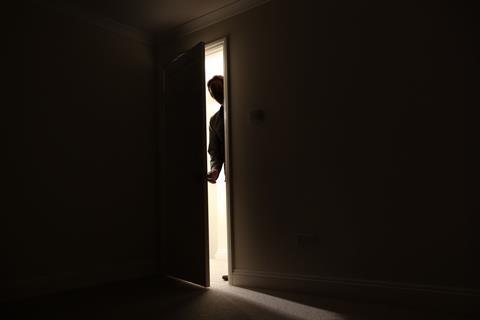Jill was told by church leaders to “forgive” her abusive husband. She explains why such advice amounted to spiritual abuse

Church and abuse are two words that should never be seen together, but there is evidence of this unholy alliance increasing. It includes abuse of power and spiritual abuse. In recent months, accusations have been levelled at prominent leaders such as Alan Scott and Mike Pilavachi. The Archbishop of Canterbury has resigned over failures to guard the CofE from abusers.
Philip Yancey described it well as far back as 2001. In his book Soul Survivor: How my faith survived the Church, he wrote, “When someone tells me of yet another horror story about the church, I respond, Oh it’s even worse than that. Let me tell you my story”.
I was a teenager studying for a place at university, when I met a young man at church, who showered me with flowers, romantic poetry, and a marriage proposal. My husband believed my role was to support him and my dreams of university were halted. His controlling behaviour developed into bullying, affairs, and abuse of all kinds. After our children were born, I gained the courage to speak out, in their interest.
I asked the minister at our evangelical church for help, but for two years we were forgotten, while my husband’s behaviour deteriorated, and he employed a knife to underline threats against me. For the next four years, the minister instructed me to forgive my husband, that the Bible did not condemn violence against wives, and divorce was not an option. When my mother-in-law told me I deserved the abuse, I was ordered to “forgive her” as well. Again, the abuse was ignored.
Forgiveness, the F word, is used by church leaders to avoid involvement and push back responsibility for the problem onto those seeking help. This undermines our worth and abusers know this. My husband would tell me, “I can do what I like to you, no one will care, you must forgive”.
After another affair was revealed, I ended the marriage.
The truth is that no one should be coerced into remaining in an abusive relationship, and the behaviour of the minister was an example of spiritual abuse, manipulating biblical teaching on forgiveness. The minister’s reluctance to confront my husband’s behaviour had a serious long-term impact on our family.
Six years later, at another evangelical church, I sought advice on counselling to address the past mishandling of marital violence. For three years the minister was “too busy” to see me and suggested I leave the church. After I told a group leader the minister was “too busy” to see me, I was summoned by the minister and reprimanded for speaking out. I was barred from the church group and disciplined.
When minsters succumb to micro-managing their congregations, they can act to control who attends the church by directing church resources towards those they want to welcome and withholding resources from those they don’t. A church leader explained, “This church is run like a business, where the healthy, wealthy and the young are welcomed, and everyone else is seen as a liability”. I was a liability. The minister suggested we “start again”, but when I questioned his past behaviour, he refused to explain and accused me of being unforgiving. Forgiveness is again used here to deflect and avoid scrutiny.
There was a real sense of relief after I ended the marriage. The physical abuse was over, but the mental and emotional abuse continued. We had children together and so there was no final cut of the ties between us. Twenty years ago the courts were not overly concerned if domestic abuse was primarily towards the wife. That is changing, and the negative impact on the entire family is now recognised. I changed churches, but counselling was difficult to access. It took ten years to receive the support I needed.
The Christian charity, Restored, is there to support survivors of domestic abuse, and their research reveals that this is as prevalent within the church as it is outside. Restored has bravely shone a light into some very dark church practices, and have enabled the voices of survivors to be heard.
I mentioned my hopes of going to university were taken away by my husband. Well, after my children had finished university, a dear friend suggested that it was now my time. My eldest son made an appointment with the head of Humanities at a local university, and told me about it only when we were in the car! After the interview, I was accepted unconditionally.
Over 40 years later than planned, I’ve now been awarded a First Class Degree in Politics and History. And I still have ambitions to fulfil! God is faithful.
If you’ve been effected by the themes raised in this article, emotional and spiritual support is available from Premier Lifeline. Call 0300 111 010. Lines are open 9am to 5pm Monday to Friday


































No comments yet